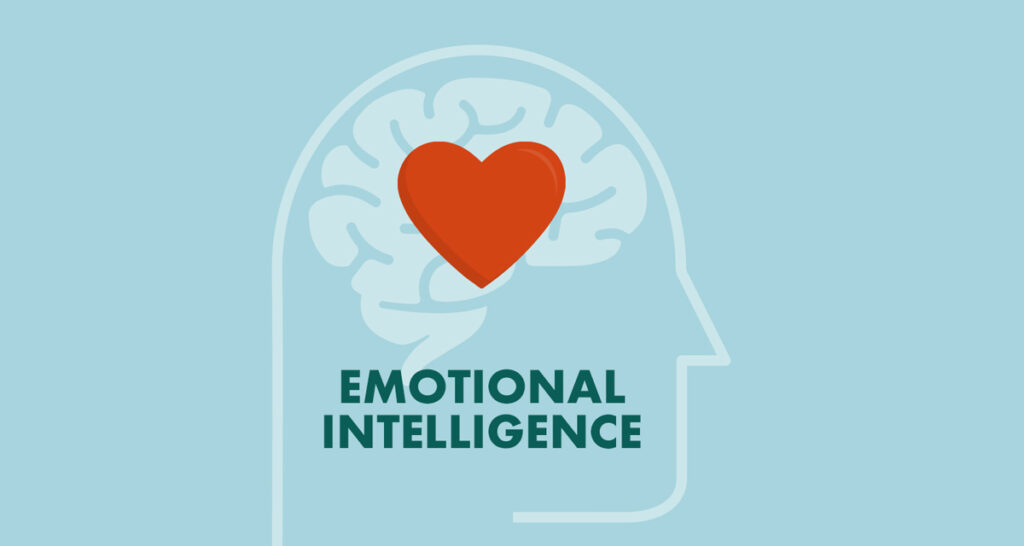Why Emotional Intelligence is Key to Workplace Success
Emotional intelligence (EI) is the ability to identify, understand, and manage one’s own emotions, as well as recognize and empathize with the emotions of others. This skill set is increasingly recognized as an essential component of workplace success. Here are a few reasons why:

Improved Communication: Effective communication is a cornerstone of workplace success, and emotional intelligence plays a key role in helping individuals communicate more effectively. By being aware of their own emotions and recognizing the emotions of others, individuals with high EI are better able to tailor their communication style to suit the needs of their colleagues or clients. They can communicate in a way that is more persuasive, empathetic, and respectful, which can help to build stronger relationships and create more positive outcomes.
Stronger Relationships: In addition to improved communication, emotional intelligence also helps individuals build stronger relationships with others. People with high EI are able to understand and empathize with the emotions of their colleagues and clients, which can lead to more meaningful and trusting relationships. They are better able to manage conflicts and work collaboratively towards solutions that benefit everyone involved. This can lead to increased job satisfaction, higher levels of engagement, and more successful outcomes.
Better Leadership: Leaders with high emotional intelligence are able to inspire and motivate their teams more effectively. They are able to recognize and respond to the emotions of their employees, which can help to build trust and loyalty. They are also able to manage conflicts and make decisions that are more in line with the needs and wants of their team members. This can lead to a more positive workplace culture, increased productivity, and better outcomes for the organization as a whole.
Increased Self-Awareness: Emotional intelligence also helps individuals become more self-aware. By understanding their own emotional triggers and reactions, individuals can better manage their stress levels and make better decisions in the workplace. They are able to recognize when they are feeling overwhelmed, frustrated, or anxious, and take steps to address these emotions before they lead to negative outcomes. This can lead to improved job performance and better overall mental health.
Adaptability: The modern workplace is constantly changing, and those with high emotional intelligence are better equipped to handle these changes. They are able to adapt to new situations, remain calm under pressure, and find creative solutions to problems. They are also more open to feedback and constructive criticism, which can help them improve their performance and stay competitive in a rapidly evolving job market.
Conflict Resolution: Conflict is inevitable in the workplace, but individuals with high emotional intelligence are better equipped to manage and resolve conflicts effectively. They are able to recognize and empathize with the emotions of those involved, which can help them find a mutually beneficial solution. They are also better at communicating their own needs and wants in a way that is respectful and productive, which can help to de-escalate conflicts and prevent them from becoming more serious.
Improved Customer Service: In customer-facing roles, emotional intelligence can be particularly valuable. Individuals who are able to recognize and empathize with the emotions of their customers are better able to provide a high level of customer service. They are able to anticipate the needs of their customers, manage conflicts effectively, and provide solutions that are tailored to their customers’ unique situations. This can lead to increased customer loyalty and satisfaction, which can ultimately benefit the organization as a whole.
Creativity and Innovation: Innovation and creativity are becoming increasingly important in the modern workplace, and emotional intelligence can be an important driver of both. Individuals with high EI are able to think outside the box, come up with creative solutions to problems, and generate new ideas that can help their organization stay competitive. They are also more open to new perspectives and ideas, which can help to foster a culture of innovation and creativity within the workplace.
Reduced Stress and Burnout: Workplace stress and burnout are major issues that can negatively impact an individual’s job performance and mental health. Emotional intelligence can help individuals better manage their stress levels and prevent burnout. By recognizing and managing their own emotions, individuals can avoid becoming overwhelmed or reactive in stressful situations. They can also recognize the signs of burnout and take steps to prevent it from occurring, such as taking breaks, practicing self-care, and seeking support from colleagues or mental health professionals.
Increased Empathy: Empathy is an important aspect of emotional intelligence, and it can be particularly valuable in the workplace. Individuals who are able to empathize with their colleagues and clients are better able to understand their perspectives and needs, which can help to build stronger relationships and increase collaboration. They are also more likely to show compassion and support, which can help to create a more positive workplace culture.
Better Time Management: Time management is a critical skill in the workplace, and emotional intelligence can help individuals better manage their time. By understanding their own emotions and reactions, individuals can prioritize their tasks and focus on what is most important. They can also recognize when they need to take breaks or delegate tasks to others, which can help to prevent burnout and increase productivity.
Increased Resilience: Resilience is the ability to bounce back from setbacks and challenges, and it is an important trait for success in the workplace. Individuals with high emotional intelligence are better able to cope with stress and adversity, which can help them stay focused and productive even in difficult situations. They are also more likely to view challenges as opportunities for growth and learning, which can help them become more successful in the long run.
Improved Decision-Making: Emotional intelligence can also help individuals make better decisions in the workplace. By recognizing and managing their own emotions, individuals can approach decisions with a clear and objective mindset. They can also take into account the emotions and perspectives of others, which can lead to more inclusive and effective decision-making.
Increased Productivity: Emotional intelligence can lead to increased productivity in the workplace. By managing their emotions effectively, individuals can stay focused and motivated even in stressful situations. They are also better able to manage their time, prioritize their tasks, and stay organized, which can help them accomplish more in less time.
Better Leadership: Leadership requires a high level of emotional intelligence. Effective leaders are able to inspire and motivate their teams, communicate effectively, and make sound decisions. They are also able to recognize and manage their own emotions, as well as the emotions of their team members. By developing their emotional intelligence, individuals can become more effective leaders and build stronger, more productive teams.
Increased Job Satisfaction: Job satisfaction is an important aspect of workplace success, and emotional intelligence can play a role in this. By developing their emotional intelligence, individuals can become more self-aware, better able to manage stress, and more effective at communicating with others. This can lead to a more positive workplace environment, greater job satisfaction, and improved overall well-being.
Improved Work-Life Balance: Emotional intelligence can also help individuals achieve a better work-life balance. By recognizing and managing their own emotions, individuals can avoid becoming overwhelmed by work-related stress and maintain a healthy balance between work and personal life. They are also better able to set boundaries and communicate their needs effectively, which can help to prevent burnout and improve overall well-being.
Increased Job Security: Emotional intelligence can also contribute to job security in a variety of ways. By developing strong relationships with colleagues and clients, individuals can become more valuable to their organization. They are also better equipped to adapt to changing circumstances and challenges, which can help them remain relevant and valuable in the long term.
Enhanced Creativity and Innovation: Creativity and innovation are becoming increasingly important in the workplace, and emotional intelligence can play a role in this. By developing their emotional intelligence, individuals can become more open-minded and receptive to new ideas. They are also better able to think creatively and come up with innovative solutions to problems.
Improved Overall Performance: Emotional intelligence can lead to improved overall performance in the workplace. By developing their emotional intelligence, individuals can improve their communication, build stronger relationships, become better leaders, increase self-awareness, adapt to changing circumstances, manage conflicts effectively, provide better customer service, foster creativity and innovation, reduce stress and burnout, and achieve a variety of other positive outcomes. This can ultimately lead to greater success and fulfillment in their careers.
By developing their emotional intelligence, individuals can improve their job performance, increase their job satisfaction, and achieve greater success in their careers.
Do you like the article? Please comment, and share with loved ones. You can as well buy me a drink through this link. You can read more about work here.




